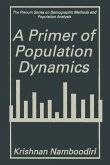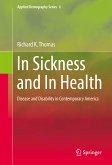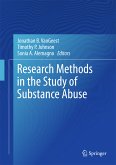Dieser Download kann aus rechtlichen Gründen nur mit Rechnungsadresse in A, B, BG, CY, CZ, D, DK, EW, E, FIN, F, GR, HR, H, IRL, I, LT, L, LR, M, NL, PL, P, R, S, SLO, SK ausgeliefert werden.
"The book covers topics such as 'Ethics and the IRB', 'IRB process' and 'Biomedical Research Topics', all very useful topics for social scientists working in the health field. ... this book would be a guiding resource for researchers while developing a research protocol, particularly direction around developing consent forms ... . this book is also useful for for sociologists of health and illness working elsewhere in the world." (Pramod Regmi and Edwin van Teijlingen, Sociological Research Online, 2017)
"The aim of this pocketbook-size manual is to assist Institutional Review Board (IRB) members and chairs to conduct ethics reviews by balancing the two major morally relevant considerations in health research ... . The book is written in easy-to-read language and would be understandable to all members of the IRB, including the lay member." (Ames Dhai, South African Journal of International Affairs, Vol. 9 (2), November, 2016)
"This would be an extremely valuable read for future researchers in preparation of their research proposals and planning ethical issues which may present significant hurdles, particularly within the ever changing UK research ethics landscape ... . I found this book interesting, insightful and instructive for both a researcher and an ethics reviewer/board member. I thoroughly enjoyed reviewing this book." (Julie Hoole, British Journal of Oral and Maxillofacial Surgery,Vol. 54 (9), November, 2016)
"Simon Whitney's book is seasoned with a wealth of examples from US IRBs ('Institutional Review Boards'), many of the examples will be of interest to non-American readers as well. ... Whitney's book provided a very good basis for evaluating my own work at an ethics board, notwithstanding some differences, and it would provide a fantastic basis for discussion at a yearly, reflective retreat that every ethics board should have." (Ulrich Teucher, British Journal of Psychology, October, 2016)
"Dr. Whitney has put together a small guide for those who are contemplating joining the IRB ... . I found this guide to be a very useful read, even after many years of service on a local IRB. I believe that this manual is an indispensable introductory text for anyone considering serving on the IRB. It will certainly help both junior and more senior faculty members decide whether or not to accept the offer to join the IRB." (Richard Balon, Academic Psychiatry, October, 2016)
"Balanced Ethics Review is intended to be a guide for members of Institutional Review Boards ... those interdisciplinary committees that are tasked with reviewing the ethical probity of research involving human participants. ... Balanced Ethics Review: A Guide for Institutional Review Board Members is an insightful exposition of the 'curse of power' tantalizing IRBS." (T. Christie, Current Oncology, Vol. 23 (5), October, 2016)
"With the constant rise of the number and varieties of research being submitted to ethical review, raising number and scale of people being involved in the IRB settings as members, the need for continuos ethical education and corresponding literature manual is evidently present today. Inthis manner, book ... can serve as the valuable contribution towards filing this gap. ... it is good IRB manual and "must read" balanced review book." (Iva Rincic, Jahr - European Journal of Bioethics, Vol. 7/1 (13), July, 2016)
"It is written from within the American review system. But by openly discussing the difficulties of balancing ethical values, and by bringing to the fore how research ethics functions as 'balance ethics,' the book has greater universality." (Pär Segerdahl, The Ethics Blog, ethicsblog.crb.uu.se, June, 2016)
"'Balanced Ethics Review: A Guide for Institutional Review Board Members' is a remarkable mini-handbook for IRB members. ... it offers principles and policies to guide IRB members in their deliberations, some of which are not universally supported. The book is thus very useful not just for beginners but also for experienced IRB professionals seeking a conceptual structure for their work." (Norman M. Goldfarb, Journal of Clinical Research Best Practices, Vol. 12 (5), May, 2016)
"Whitney has done serious research work, and has included relevant practical experience. ... there is no doubt it is good IRB manual and 'must read' balanced review book." (Iva Rincic, JAHR - European Journal of Bioethics, Vol. 7 (13), 2016)









